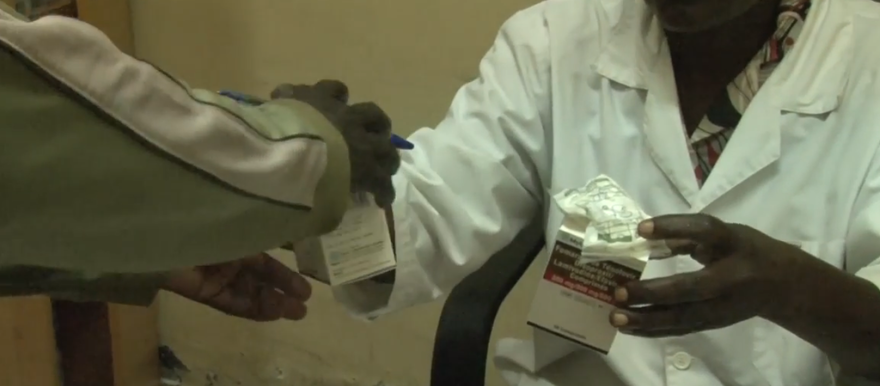S Sudan violence deprives thousands of HIV patients of drugs

Thousands of HIV/AIDs patients in South Sudan have been deprived of drugs for months because hospitals have been destroyed, populations of whole towns and villages have been displaced, and government healthcare services have stopped serving rebel-held areas.
UNAIDS, the United Nations programme to control the spread of the disease and assist infected persons, says an estimated 150,000 people in South Sudan were living with HIV prior to the crisis, according to data from 2012.
Nearly a third of them are believed to have fled their homes since December 2013, the UN agency says. That puts the figure of HIV/AIDS patients displaced by violence at nearly 50,000.
“Many people living with HIV who were healthy now face a desperate future. We must act urgently to ensure they receive treatment,” said Michel Sibide, UNAIDS Executive Director.
South Sudan’s conflict has been heaviest in Unity, Upper Nile, Jonglei and Central Equatoria states. About 100,000 people from these states are now under UN protection in government-controlled areas, mostly from the Nuer ethnic group.
Some of these areas have higher HIV rates than elsewhere in the country, compounding the problem.
Cecilia Ferreyra, the HIV & TB Technical Advisor for Doctors Without Borders, says “several of the states most affected by the conflict have some of the highest HIV prevalence rates in the country.”
In many parts of South Sudan “assistance to HIV-positive people is ineffective or nonexistent,” she says, adding “conflict or political instability put existing and future programs at risk.”
MSF managed an HIV/TB project in Bentiu State Hospital prior to the start of the conflict, but that has since been forced to close.
Also in Leer, southern Unity State, an MSF hospital was destroyed by government forces. The hospital was the only facility providing secondary healthcare, including treatment for HIV, in an area with approximately 270,000 people.
According to a report by MSF dated 1 July, the medical organization was treating 126 HIV and 74 TB patients in Leer when its teams were forced to leave in January.
“Of these MSF was only able to give 67 HIV and 46 TB patients three-month supply packs which would have lasted to the end of April. Since then, MSF has only been able to trace 41 of the HIV and 16 of the TB patients,” the medical organization says.
MSF does not know the status of the rest of its patients.
Likewise in Bentiu, MSF had 147 TB and 33 HIV patients on treatment at the end of December when it first had to evacuate. Of these patients, the great majority are still unaccounted for, and therefore probably not receiving any treatment at present.
Even in areas not directly affected by the war, HIV treatment coverage is often limited. In Yambio, for example, only 26 percent of people in urgent need of treatment are receiving it, according to Ferreyra, the MSF advisor.
Feyreyra says, “What I've seen in Yambio, is what we saw in Kenya and Zimbabwe more than 10 years ago,” drawing comparisons to the lack of drugs, testing and the high level of stigma in the community.
“Unfortunately, we still see patients arriving very late and in the most advanced stage of the disease, because they are not diagnosed and treated on time,” the MSF official explains.